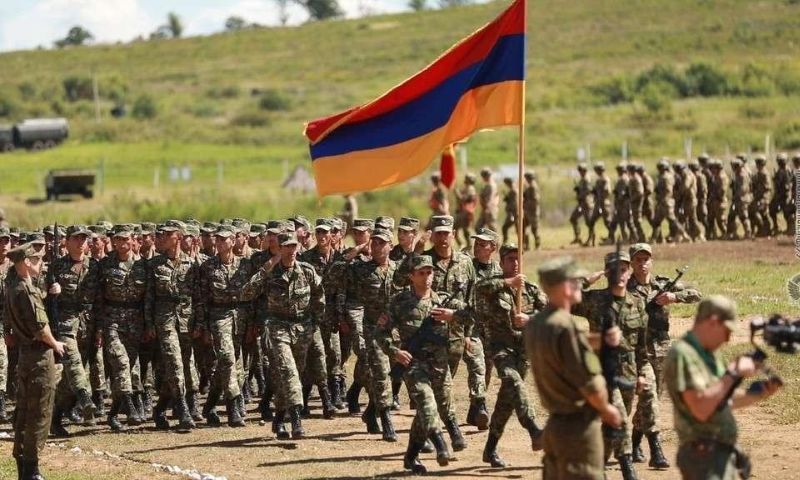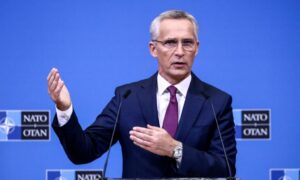YEREVAN: Joint military exercises between Armenian and US military started on Monday, marking another indication of Armenia’s shifting geopolitical alignment away from Russia. This shift comes as Russia’s invasion of Ukraine continues to reshape post-Soviet relations in the region.
The joint exercises, known as “Exercise Eagle Partner,” began with an opening ceremony, as confirmed by the US Army’s Europe and Africa spokesperson. Armenia’s defense ministry stated that the drills aim to enhance interoperability with US forces for international peacekeeping missions.
Around 85 US soldiers will participate in the exercises, training alongside 175 Armenian troops from September 11 to September 20 at the “Zar” and “Armavir” training grounds. These drills are designed to assist Armenia’s 12th Peacekeeping Brigade in meeting NATO standards, ahead of an evaluation later this year.
Russia’s reaction to Armenia’s decision to conduct military exercises with the US has been notably cautious. Kremlin spokesman Dmitry Peskov emphasized the need for “very deep analysis” while acknowledging that discussions on the matter would take place in close partnership dialogue with Armenia.
Last week, Moscow summoned Armenia’s ambassador to express concern over what Russia deemed “unfriendly steps” taken by the country. Despite this, both nations officially maintain that they are allies.
However, some experts believe that Russian-Armenian relations have reached a strategic impasse. Independent political analyst Gela Vasadze noted that recent statements from Russia sounded more like a threat to Yerevan than a reflection of the current state of the alliance.
Frustration in Armenia Over Russia’s Lack of Support
Amid rising frustrations in Armenia over Russia’s perceived lack of military and political support during recent tensions with historic rival Azerbaijan, some citizens have expressed hope for a fresh start with the United States. The conflict between Armenia and Azerbaijan escalated in 2020 over control of Nagorno-Karabakh, resulting in a brief but intense war. Russia brokered a ceasefire and deployed peacekeepers, but tensions in the region have persisted.
Armenian Prime Minister Nikol Pashinyan recently criticized Moscow’s inability or unwillingness to control the Lachin corridor, a key passage connecting Armenia to Nagorno-Karabakh, which has faced blockades and humanitarian crises.
Independent analyst Arkady Dubnov commented on the changing dynamics in the region, stating that “weakened Russia is rapidly losing influence in its Soviet-era backyard.” He noted that Armenia’s frustrations with Russia, particularly during and after the Karabakh conflict, have prompted the country to seek new alliances.
The situation in Nagorno-Karabakh remains precarious, with Armenia accusing Azerbaijan of recent troop movements near the region, raising concerns about the potential for renewed hostilities. The European Union and the United States have been involved in mediation efforts, but a lasting peace resolution has yet to materialize.























